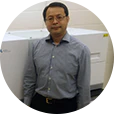
Refurbished and Used Tissue Processors for Sale
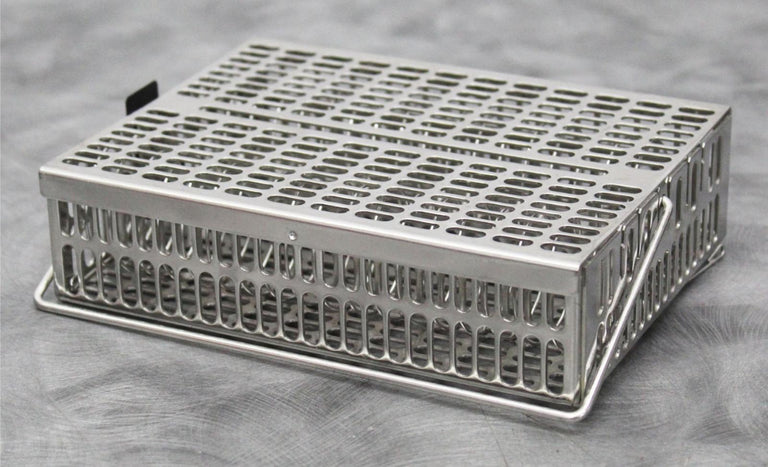
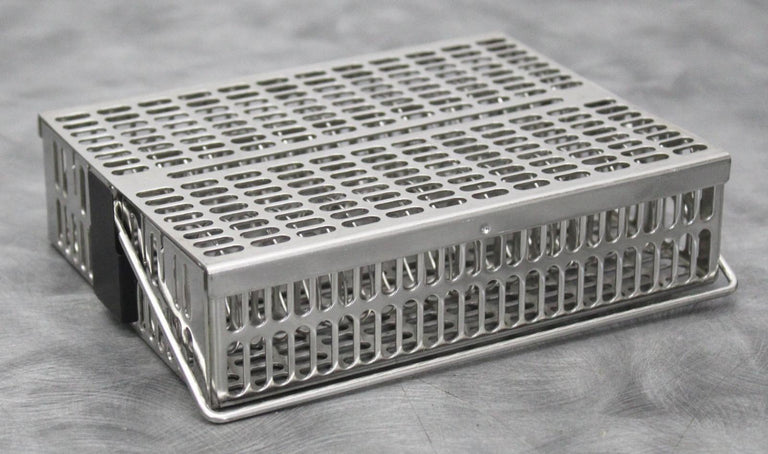
Tissue Processor Basket
Tissue Sample Specimen Cassette for Leica Tissue Processor w/ Black Tab on Side
Item No. 24073
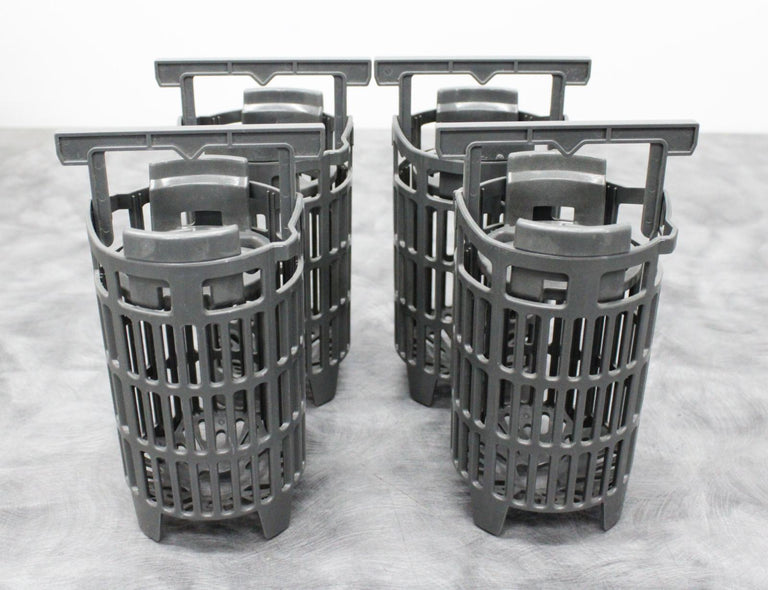
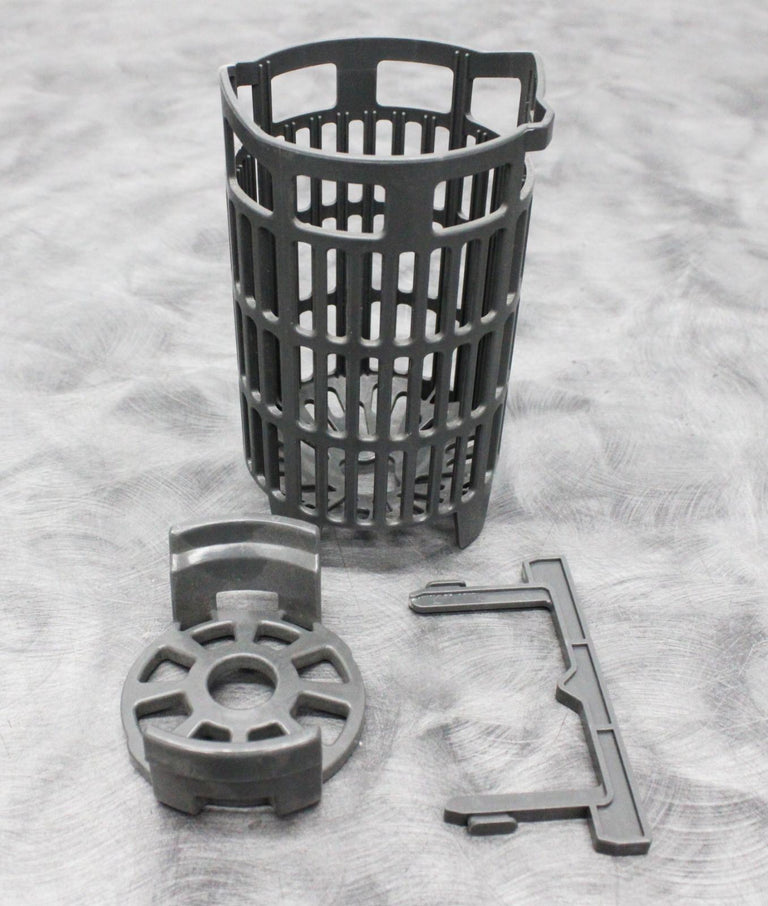
Tissue Processor
x4 Sakura Tissue Tek Xpress X120 Baskets w/ Handle & Lid Holds 40 Cassettes 7103
Item No. 26194
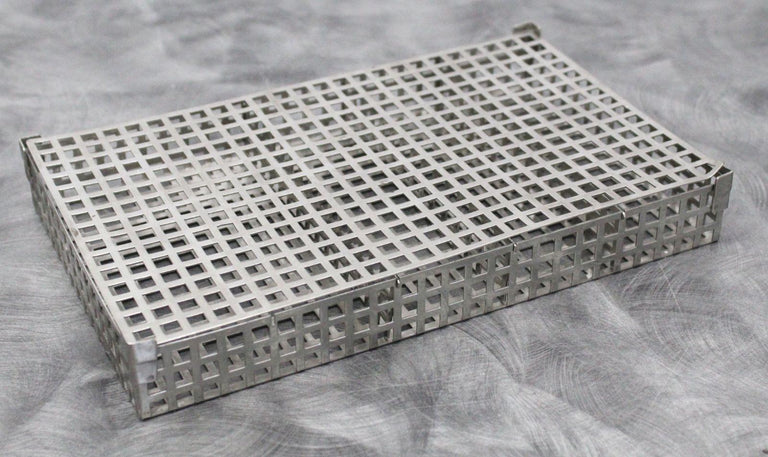
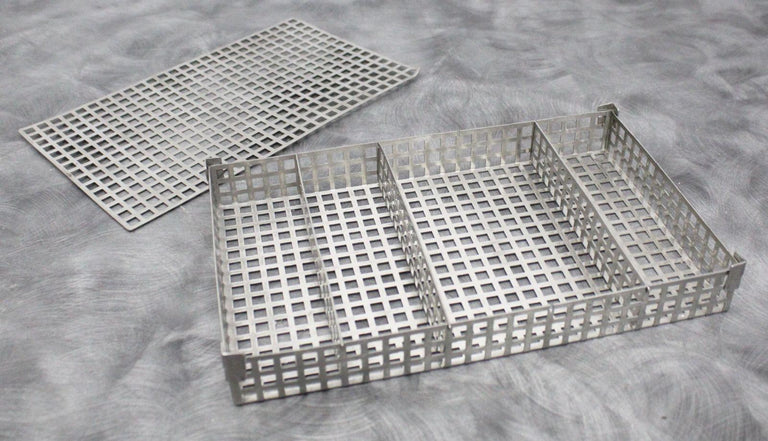
Tissue Processor Basket
Tissue Sample Specimen Cassette for Tissue Processor
Item No. 22100
Why Buy Used Laboratory Tissue Processors?
Before your tissue samples get to the microtome or cryostat, they need to be processed and infused with the right solutions. Without this step, tissue can be impossible to section and even get destroyed when someone tries to work with it. In instances where you only have one sample to work with, tissue processing can be the difference between getting a diagnosis and finding nothing at all.
Tissue processors are devices that prepare samples for microscopic examination. They automate steps of fixation, dehydration, clearing and paraffin infiltration, enabling accurate diagnosis in histology and pathology laboratories. This critical equipment improves efficiency and accuracy, handling multiple samples and reducing processing time compared to manual methods.
For many labs, getting a shiny new tissue processor machine is not an expense they can afford. Fortunately, you can get similar performance and significant cost savings with a used tissue processor, especially when it's been inspected, serviced and sold by a trustworthy provider like New Life Scientific. Used lab equipment is our specialty, and we can help you find the right tissue processors for your work.
Some benefits of buying used tissue processors online from New Life Scientific include:
- Cost savings: Our used tissue processors offer up to 95% in savings compared to new units.
- Faster turnaround times: All our pieces are available for delivery and even parcel shipping.
- Top performance: We service and repair each unit to provide years of top-notch performance.
Types of Tissue Processors
There are various types of tissue processors that adapt to different laboratory needs, tissue types and workflow preferences. Some of the most common types of tissue processors include:
Tissue Transfer
Tissue transfer processors — also called dip-and-dunk machines — involve moving the samples between containers for processing. The tissue is held in a basket and sent through a line or rotary carousel. These models can hold up to around 100 specimens, and processing is typically quick. They are great for smaller labs and specialized tissues that require specific reagent concentrations or processing times.
Fluid Transfer
In a fluid-transfer model, the specimen is held in one container as fluids are pumped in and out as needed. These designs are better for large labs with a lot of samples to process, as these machines can carry as many as 300 samples. They often support robust fluid circulation, raised temperatures, and vacuum-pressure cycles.
Microwave Tissue Processors
These are specialized machines that use microwave energy to accelerate the preparation process. They use electromagnetic radiation to heat tissue samples evenly, speeding the chemical reactions involved in each preparation step. Some advanced models include precise temperature control and presets programs for specific tissue types and thicknesses.
These tissue processors reduce the processing times and are particularly useful for urgent cases.
Vacuum Tissue Processor
This type of tissue processor uses vacuum and pressure cycles to enhance reagent penetration, reduce processing times and ensure uniform treatment of tissue samples. The processor embeds the fixed and dehydrated tissue in a supporting substance and uses the vacuum and pressure cycles to enhance infiltration. After processing, the samples are transferred into wax-filled molds for sectioning or staining.
Leading Tissue Processor Manufacturers
At New Life Scientific, we are constantly sourcing, repairing and uploading used tissue processors from top manufacturers. We select units from reliable brands that use the best materials and the latest technologies, providing durable equipment that performs well even after years of operation. Some of the top tissue processors and accessories manufacturers include:
Leica Biosystems
As one of the biggest names in histology instrumentation, Leica has helped advance the field as a whole by adopting innovative user interface tech and consistently providing well-built instruments. For instance, Leica was the first manufacturer to include touchscreen interfaces on its tissue processors. This made the learning curve much less steep for new users, and it's simply easier to use than other interfaces. Leica systems may pose a challenge to those who intend to service and repair their tissue processor in-house. The company prefers to send technicians out for pretty steep fees rather than assist the user in fixing it.
Thermo Scientific
While Thermo sold its histology division in 2019, its equipment is still quite popular on the used market. Their tissue processors, while reliable and built well, are somewhat overwrought in terms of both internal design and user experience. Consequently, troubleshooting and fixing them can be quite difficult. However, it is precisely this overthinking that fosters innovation. Thermo has released some very unique tissue processors, like the PATHCENTRE. Thermo offers very good support. Manuals are readily available and their support staff has been quite helpful to us in the past.
Sakura
Dubbed the "best-built, best-engineered" systems by our senior technician, Sakura systems just work. In the rare instances where they do break down, their thoughtful design makes troubleshooting easier. However, Sakura systems do fall behind in terms of user experience. Their control systems aren't as intuitive as Leica's or Thermo's.
What to Look for When Buying a Used Laboratory Tissue Processor
There's sometimes uncertainty involved when purchasing used products, but at New Life Scientific, we do everything we can to reduce that uncertainty and provide tissue processors you can be confident in. We minimize the fear of the unknown that can come with buying used by giving full transparency on each product we offer. We can provide a complete rundown of any refurbishing and anything else we know about the instrument, including tests we've conducted.
When buying a used lab tissue processor for histology, you should keep an eye out for a few different factors unique to the instrument to make an educated purchase, including:
Compatibility With Your Application
Before buying a used — or new — tissue processor, you'll need to carefully consider your application's needs and whether a specific tissue processor can meet those requirements. If you're working with high volumes and more advanced features, a fluid transfer model is likely the best choice. For lighter demands, a tissue transfer machine can be a good choice.
Some key factors to consider include:
- Processing speed and duration
- Capacity
- Ventilation
- Compatibility with existing systems
- Physical dimensions and weight
Condition of the Unit
A significant concern that shows up when buying a used machine is the condition of the specific tissue processor you're looking at. Be sure to inspect factors such as:
- Age: Tissue processors can last a long time and provide exceptional performance throughout their lifespan. However, it's still essential to consider your machine's age. For particularly old tissue processors older than about 15 years, use some extra scrutiny.
- Errors: Always thoroughly review the tissue processor and look for any technical errors or proof of testing to ensure it's working in mint condition.
- Functional or cosmetic damage: A few dings and scrapes won't be a big deal and can even bring down the cost, but significant damage that makes the device not work as intended is definitely something to avoid.
Accessories
Check for the accessories and components that come with the used tissue processor. Unless you already have plenty of spare baskets, you'll want to make sure that it has enough baskets included to hold your samples. This also applies to reagent and waste jugs. Buying a full set of new jugs can cost thousands of dollars!
Reliability
Perhaps as vital as testing info is warranty info. Used equipment dealers don't always back up their sales. They might advertise a tissue processor in perfect condition, but failures could be right on the horizon — then, you're out of luck. Seek out products that offer at least a 30-day warranty — no sense in getting stuck with a broken system!
With New Life Scientific, you get exceptional warranties on most of our products. In addition to our standard warranty, some products have an extended warranty lasting for a full year. Additionally, you can still receive technical support even after your warranty expires.
Buy From New Life Scientific: Your Trusted Source for Used and Refurbished Tissue Processors
New Life Scientific is your source for reliable used laboratory tissue processors and other histology equipment. We're a knowledgeable scientific vendor with a long track record of positive customer experiences — explore our reviews to see for yourself! Buy with confidence with in-depth technical evaluations and a strong warranty, knowing our in-house technicians inspect, test, service and repair the many instruments we receive.
After an examination and thorough cleaning, products typically leave our shop meeting manufacturer specifications. When you buy from New Life Scientific, you can always contact us for after-sales support with any questions or issues that may arise, even after the warranty expires.
If you have any questions about our used tissue processors or need assistance with arranging freight or a purchase order, please reach out to one of our representatives today!

WE SHIP WORLDWIDE
Many of our international orders have custom-built wooden crates to fully enclose them during shipping.
Please contact us for accurate shipping charge.
Contact UsHear From Our Customers
Buy & Sell Equipment at New Life Scientific
We can purchase your used lab equipment.
Contact us for assistance!

























